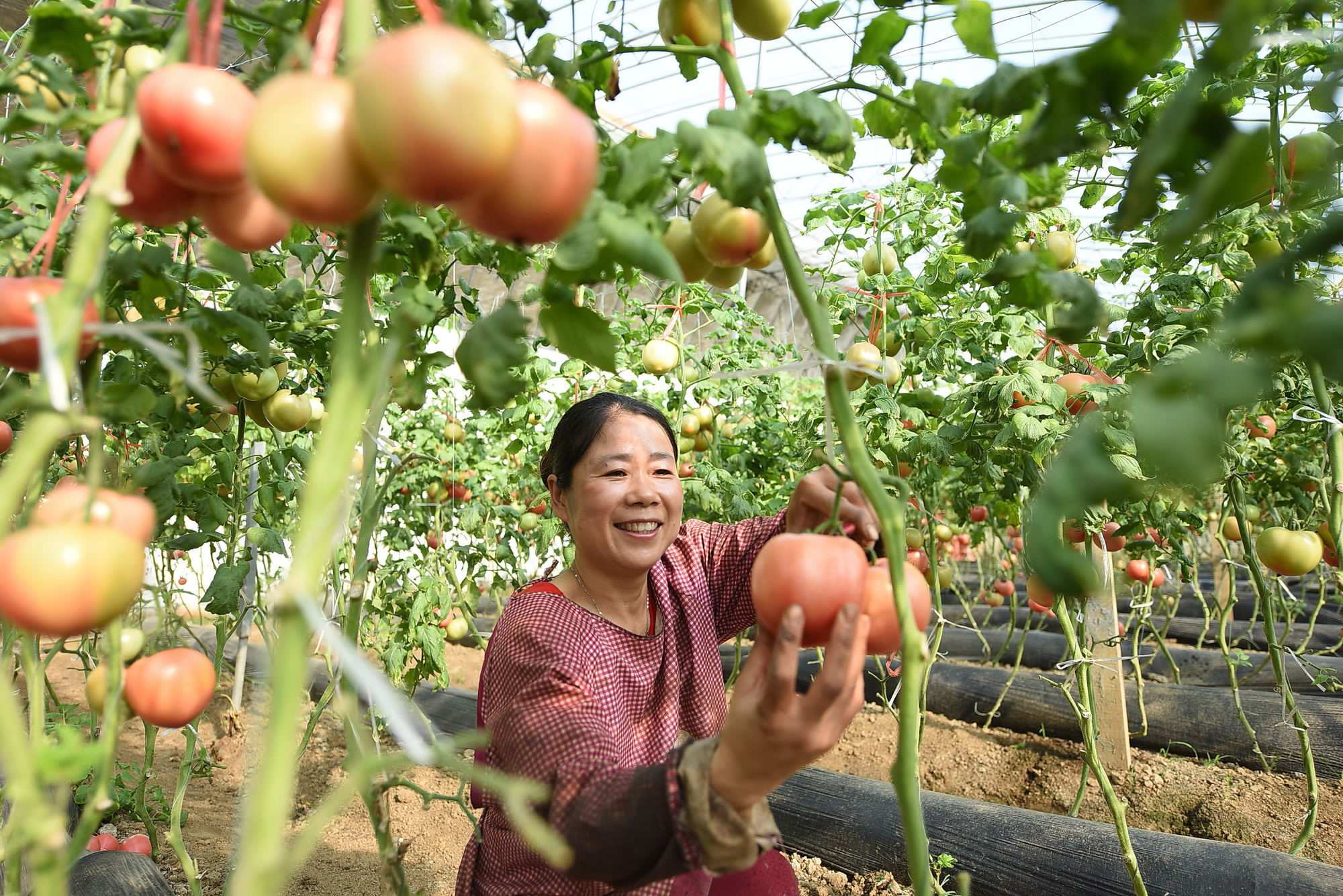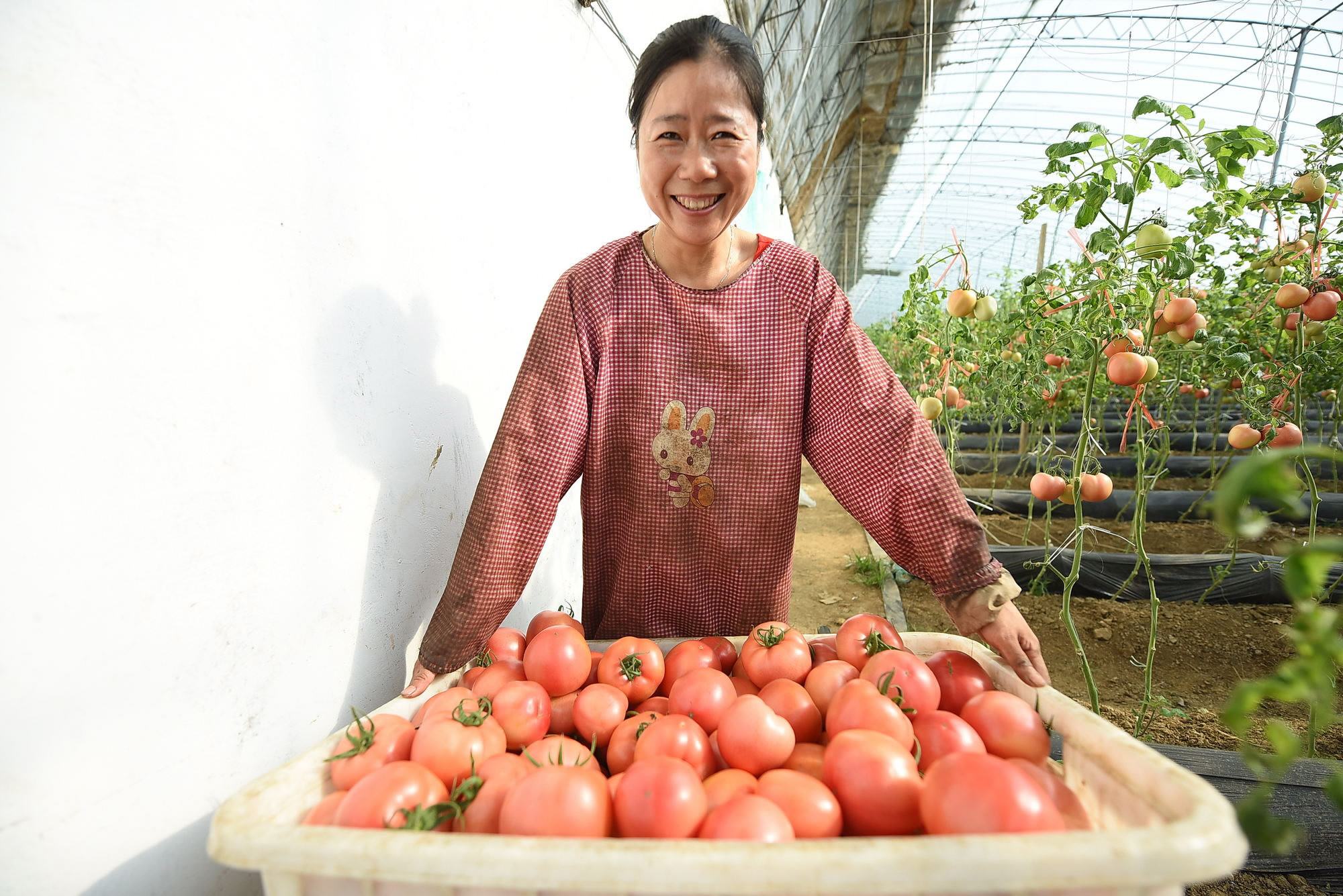Chinese and US scientists said Thursday they have found what's needed to make tomatoes tasty again.
In a study published in the US journal, Science, researchers from the Chinese Academy of Agricultural Sciences (CAAS) and the University of Florida identified the chemical combinations and genetic recipe for a better-tasting tomato.

A local woman gathers tomatos in the greenhouse in Lian Yungang city, east China's Jiang Su Province on December 7, 2016. /CFP Photo
"In recent years, consumers often complain that the modern tomato is less flavorful than it once was," co-principal investigator Sanwen Huang, deputy director general at the Agricultural Genome Institute of the CAAS, told Xinhua. "Our results provide a practical roadmap for breeding tomato varieties with better flavor."
For the study, a 170-person consumer panel was created to evaluate 160 tomato samples representing 101 varieties, based on qualities such as "overall liking" and "flavor intensity."
The results pointed to dozens of chemical compounds of interest, and further research using a statistical model revealed 33 flavor compounds that correlated with consumer liking, including glucose, fructose, citric acid, malic acid, and 29 volatiles.
The reason why modern tomatoes don't taste good anymore is that a total of 13 of these flavor-associated compounds "were significantly reduced in modern varieties relative to heirloom varieties," their paper wrote.
Moreover, the researchers found that smaller fruit tended to have greater sugar content, suggesting that "selection for more sizable tomatoes, while it has indeed allowed domesticated tomatoes to grow, has cost sweetness and flavor."

A local woman gathers tomatos in the greenhouse in Lian Yungang city, east China's Jiang Su Province on December 7, 2016. /CFP Photo
Based on this knowledge, Huang and Professor Harry Klee of the University of Florida sequenced the genomes of 398 modern, heirloom and wild varieties of tomato, identifying about 250 genetic loci, or positions of genes on a chromosome, that controlled tomato flavor.
"We're just fixing what has been damaged over the last half century to push them back to where they were a century ago, taste-wise," said Klee in a statement. "We can make the supermarket tomato taste noticeably better."
Klee said new tomato varieties with better flavor could be ready in three to four years.
In addition, "the genes and pathways identified here in the tomato almost certainly point to pathways worth investigating for improvement of flavor quality in other fruit crops," they wrote.
(Source: Xinhua)
20km










